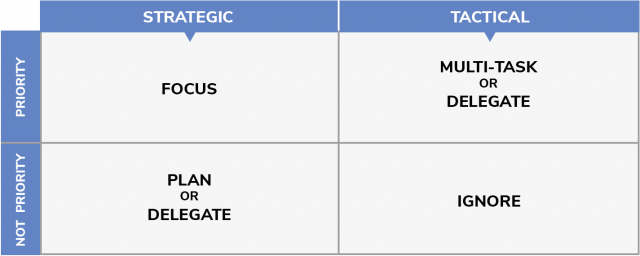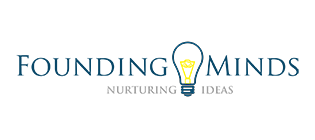
Multi-tasking is seen as a must-have skill in today’s fast-paced environment. In many cases, it has become a necessity rather than a choice. Increasingly though, it is being realized that human beings are incapable of true multitasking and even when we multitask, it is not productive.
Human multitasking
Multi-tasking is defined as the ability to do two or more things at the same time. There is concurrent multitasking, where two or more tasks are done at the same time. Alternatively, context switched multi-tasking involves switching between multiple unfinished tasks. We will talk about the science behind multitasking, the pitfalls and some thoughts on being effective at juggling tasks.
The Science of multitasking
Prefrontal Cortex is the task manager of the human brain. It is split into two hemispheres. Studies have shown that when human beings are dealing with one activity, the entire prefrontal cortex is dedicated to managing this task. When you add a second task, the prefrontal cortex dedicates one hemisphere to each task. Each hemisphere is now theoretically able to handle a task independent of the other. Add a third task and the brain starts to swap things around to accommodate the third task. Humans are imperfect machines and we start forgetting things as we switch between tasks, which leads to a significant increase in errors. (Multitasking splits the brain)
It would seem that with adequate training we could do two tasks effectively at the same time. This would be true if we had no other stimulus around us but these two tasks. In reality, though, there is a constant barrage of things ready to distract us from our two tasks. A door slamming, notification of a new email coming in are all stimuli that will need the attention of our brain to process consciously or subconsciously.
If we cannot do true multitasking, then we are left with the possibility of doing context switched multi-tasking. When we switch tasks, it puts a significant drain on one’s brain to catch up and to get refocused. This can be a few minutes for tactical tasks to over a half an hour for creative or strategic activities. It seems reasonable that humans can handle two or more tactical or repetitive tasks simultaneously, but it’s best to focus on one strategic activity at a time. It is ironic then that it is managers and leaders who have a more strategic focus that get called on to multitask more than staff members who typically are doing one assigned task!!!
Multitasking hurts
It is widely accepted that multitasking leads to lower productivity overall. This is not limited to slowing your activities, thereby reducing overall productivity. Studies have shown that your IQ drops when you multi-task significantly. You go through the motions of a task without thinking it through leading to lower quality outcomes.
There are health impacts as well. A study by the University of Sussex found that heavy multi-taskers have smaller gray matter density. This brain damage can have long lasting implications.
Multi-tasking also lowers your emotional intelligence. Social awareness, empathy, self-esteem etc. drop when you become more machine than a human trying to juggle multiple tasks without emotionally connecting with the activities. It also impacts the way you engage with people affecting relationships.
How to manage tasks more effectively
I would like to share a strategy I use to manage my work. I use a variation of the Eisenhower Matrix to organize my tasks.

I keep assigning tasks as they come into these quadrants. You can use any tool of your choice to model these.
Daily Planner
Every day in the morning, I pull down items from this list into my daily ToDo. I choose one or two tasks that are strategic and important, as well as several tasks that are tactical and urgent. I allocate time slots for the strategic items in my calendar, so I am not disturbed. During the day, I make several passes through the list ticking the tactical-important things off. These sometimes serve as a break for more heavy-lifting strategic activities and I get some satisfaction from striking off these lists. I limit any multitasking to tactical tasks.
There are any number of distractions to take you away from your task but there are some which I consider self inflicted. It is an easy escape when I get stuck or bored. This is especially true at the start of a heavy long activity and my brain needs to be forced to focus. For me, it is checking the news feed to catch up on recent world events. I do this without thinking and before I know it, I have lost time and focus. These can be habit forming and very hard to break.
When it is time to focus on my strategic tasks, I close the door to my office and I give my full attention to the task at hand. It takes time to get my juices flowing, but when it does, my productivity and creativity are at its peak. Often I am surprised by how quickly I am able to get a large task done when I am focused solely on it.
End of the day, I throw out my ToDo to start all over again the next day. It gives me both a sense of achievement and closure. Starting fresh has a more positive impact on me than incrementing the list for the next day. I use a physical spiral binder for my daily ToDo list and keep striking off items when done. At the end of the day, I tear and throw the daily ToDo in the bin.
I hope this gets you thinking about your own task management practices and helps you improve them. All of the above works within a framework of long term planning so you have your strategic and important items prioritized. I will talk about this more in a future blog.
Author: Regi Roy
With over twenty years of experience bringing innovative products to market, Regi Roy, as CEO, provides leadership to all activities at Founding Minds. Regi brings a wealth of expertise, having led large teams developing WordPerfect Suite at Corel, bootstrapping his medical imaging company and recently helping grow TITUS into a Deloitte Fast 500 company.

